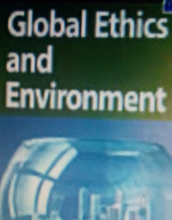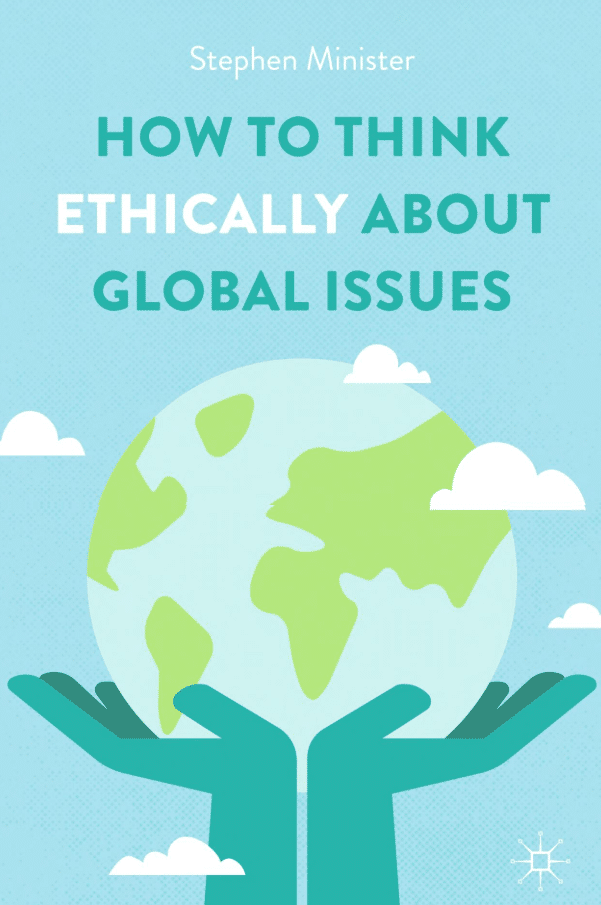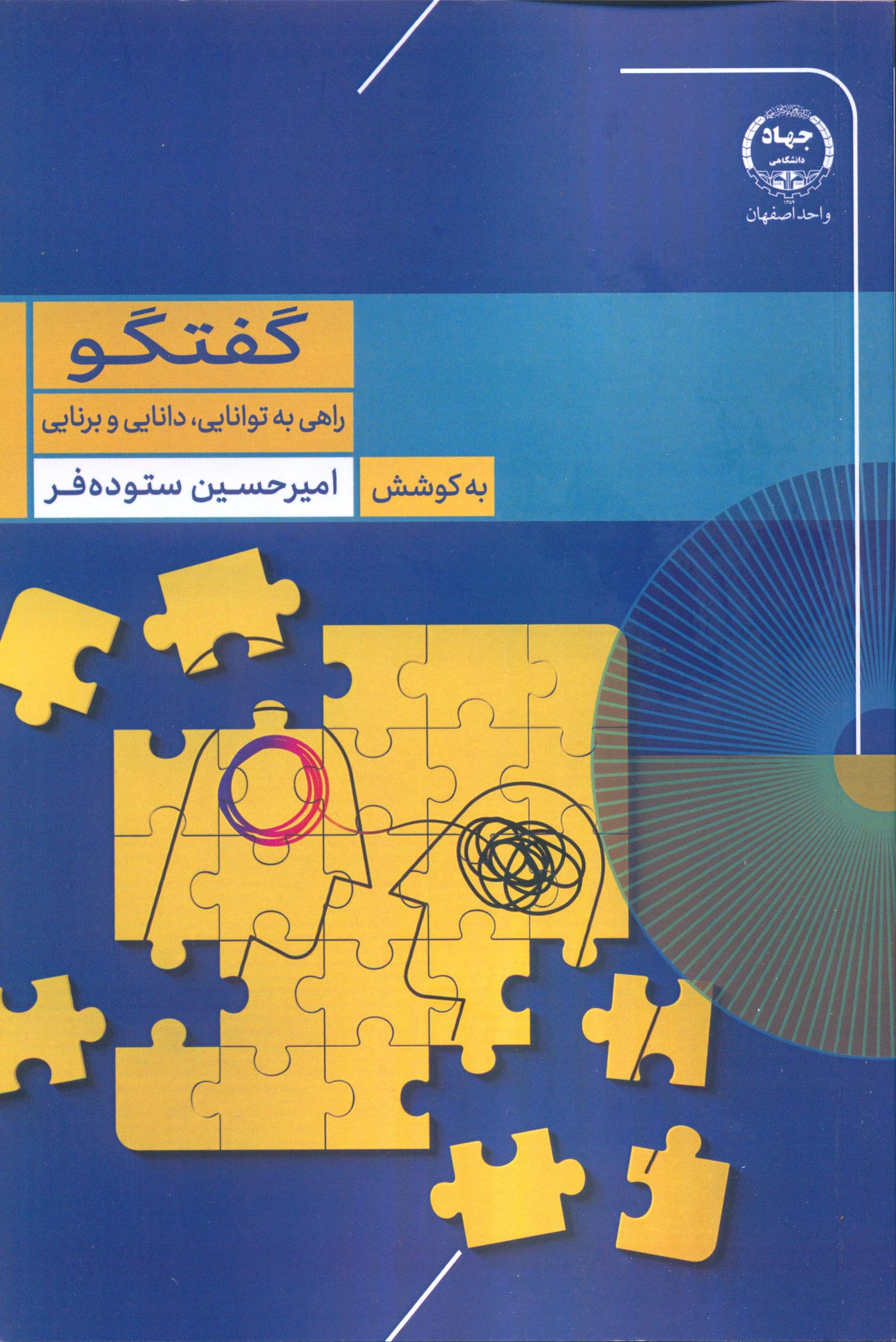اخلاق جهانی با برخی از ضروریترین نگرانیهای اخلاقی امروز مواجه میشود، نگرانیهایی از قبیل دولتهای سرکش، شکنجه، کمیابی منابع، فقر، مهاجرت، مصرف، تجارت جهانی، گردشگری پزشکی و مداخله بشردوستانه. همین که سرمایه داری جهانی گسترش پیدا کرده و تا گوشههای دوردست جهان رسیده است، مشکلات عملی همواره تشدید و تأثیرگذاریها به طور فزایندهای جدی و غیرقابل برگشت شدهاند. این مشکلات عملی مسائلی به همان اندازه مهم و اخلاقی را به همراه آوردهاند. اصول و مفاهیم اخلاقی مرتبط با مشکلات زیست محیطی جهانی روشنگرند و با این مسائل سر و کار دارند: تغییرات آب و هوایی، منابع طبیعی تحت فشار، و حیات وحشِ در خطر انقراض، و نیز بسیاری از مسائل دیگری که هم جهان توسعه یافته و هم جهان در حال توسعه را تحت تأثیر قرار داده است. در طول دو دهۀ گذشته، با رسیدن بحثهای مربوط به اخلاق در تحولات علم و فناوری به سطحی از اهمیت عمومی، مشخص شده است که معنای اصطلاح “اخلاق” در بالاترین سطح قابل بحث است. آنچه برای برخی ملاحظهای اخلاقی است ممکن است در نظر دیگران یک موضوع اقتصادی تلقی شود و حتی وقتی صحبت از ارزشهای عمیق زندگی میشود، در بسیاری از موارد جدا کردن نظر از اعتقاد جازمانۀ دینی یا جدا کردن باور از دستور دینی دشوارتر است. اخلاق زیست محیطی شاخهای از اخلاق است که به بررسی رابطۀ انسان و محیط و چگونگی نقش اخلاق در این امر میپردازد. اخلاق زیست محیطی معتقد است که انسان و همچنین سایر موجودات زنده، شامل گیاهان و حیوانات، بخشی از جامعهاند. این عناصر بخش بسیار مهمی از جهان هستند و بخشی کاربردی از زندگی انسان به حساب میآیند. بنابراین ضروری است هر انسانی به این امر احترام بگذارد و در مواجهه با این موجودات از اخلاق و اصول اخلاقی استفاده کند. اخلاق زیست محیطی بخشی از فلسفۀ زیست محیطی است که مرزهای سنتی اخلاق را از صِرف انسان به جهان غیرانسانی تعمیم میدهد. این علم بر طیف وسیعی از رشتهها از جمله حقوق محیط زیست، جامعه شناسی زیست محیطی، الهیات زیست محیطی، اقتصاد اکولوژیکی، اکولوژی و جغرافیای محیطی تأثیر میگذارد. این کتاب رابطۀ چند بُعدی و رابطۀ مسئله-محور بین اخلاق و توسعه را در چارچوب مجموعهای از ابزارهای روششناختی و مقولههای مفهومی مانند سرمایه اجتماعی، جامعۀ مدنی، حکمرانی خوب، مهاجرتهای غیرارادی و حقوق بشر بررسی میکند.
Global ethics addresses some of the most pressing ethical concerns today, including rogue states, torture, scarce resources, poverty, migration, consumption, global trade, medical tourism, and humanitarian intervention. As global capitalism expands and reaches ever-further corners of the world, practical problems continue to escalate and repercussions become increasingly serious and irreversible. These practical problems carry with them equally important and ethical issues. Explores the ethical principles and concepts relevant to global environmental problems. Addresses climate change, over-stressed natural resources, endangered wildlife, and many other issues affecting both the developed and developing worlds. During the past two decades, with debates on ethics in science and technology developments reaching a level of public significance, it has become clear that the meaning of the term ‘ethics’ is at best debatable. What is an ethical consideration for some people might be considered an economic matter by others, and when it comes to deeply held values on life, in many instances it is even more difficult to separate opinion from dogma or belief from religious prescription. Environmental ethics is a branch of ethics that studies the relationship between human beings and the environment and how ethics play a role in this. Environmental ethics believe that humans are a part of society and other living creatures, including plants and animals. These items are a very important part of the world and are considered to be a functional part of human life. Thus, it is essential that every human being respect and honor this and use morals and ethics when dealing with these creatures. Environmental ethics is the part of environmental philosophy which considers extending the traditional boundaries of ethics from solely including humans to including the non-human world. It exerts influence on a large range of disciplines including environmental law, environmental sociology, eco-theology, ecological economics, ecology and environmental geography. This book explores the multi-dimensional and problematic relationship between ethics and development in the context of an array of methodological tools and conceptual categories such as social capital, civil society, good governance, involuntary displacement and human rights.
Title: Global Ethics and Environment
Author: Tim Roberts
Publisher: Alexis Press LLC, 2019
ISBN: 1645320499, 9781645320494
Subjects: environmental law, environmental sociology, eco-theology, ecological economics, ecology and environmental geography.
Roberts, Tim. (2019). Global Ethics and Environment. New York: Alexis Press LLC.




